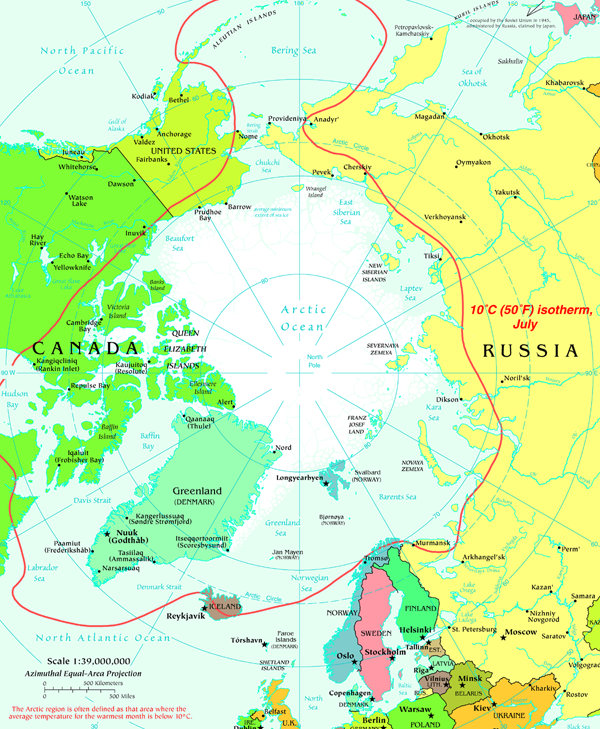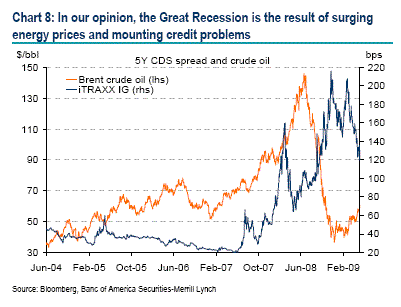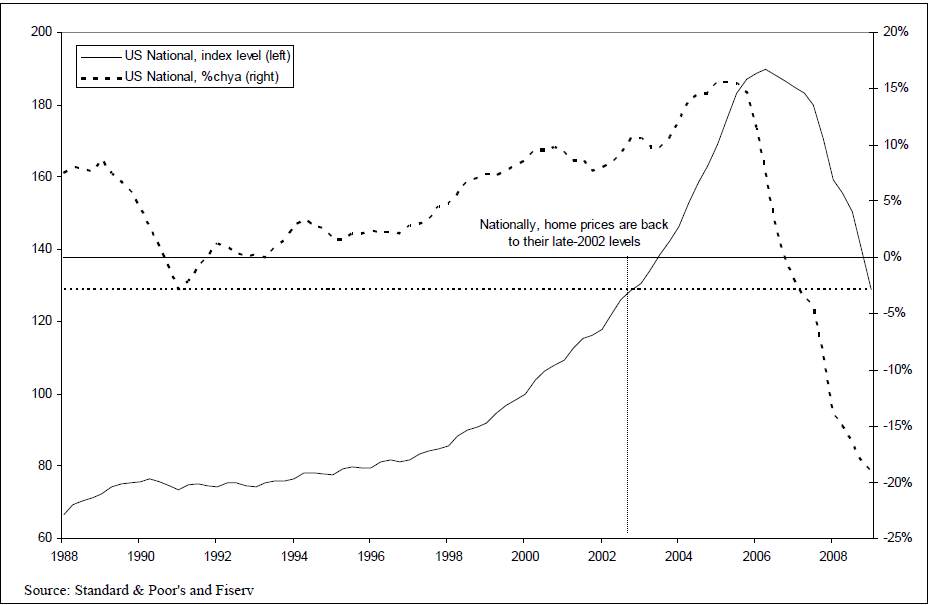Jason Clenfield and Toru Fujioka at Bloomberg report that Japanese industrial production rose 5.2% in April from March.
"Still, output is running at two-thirds last year’s levels, saddling manufacturers such as Nikon Corp. with workers they no longer need and driving the jobless rate to a five-year high of 5%."
"There are signs that Germany’s economy is recovering from the worst recession since World War II. On May 25, the Ifo economic institute said its May business climate index climbed to 84.2 from 83.7 in April. This week, retailer Arcandor AG, which employs more than 23,000 people, said second-quarter earnings were 'surprisingly good.'"James Topham at Reuters reports that Nippon Oil, Japan's biggest refiner, plans to refine 4% less crude in June from the year previous. Japanese refiners have excess production that they have been looking to export, given local demand reductions based on demographics and the current economic climate. Platts reported that Japan's national oil company's economists expect oil to fall to $45/b by the end of July--see Daily Sources 5/28 #6.
2. EUROZONE INFLATION FALLS TO ZERO, UPTICK IN GERMAN RETAIL SALES
Ralph Atkins at the Financial Times reports that the eurozone annual inflation rate fell to zero in May from 0.6% in May.
"Economists said inflation would turn negative in June, complicating further the task of the European Central Bank (ECB) as it seeks to combat the worst economic downturn for half a century in continental Europe.Simon Johnson at Baseline Scenario notes that in January, Lucas Papademos, VP of the ECB, suggested that inflation would not fall below 2% for the eurozone. ECB head Jean Claude-Trichet responded to the zero inflation news by commenting that recovery is around the corner, and thus this should be ignored. Johnson's comments:
Among the eurozone’s biggest countries, Germany and Spain have already reported negative national inflation rates."
"1. Private sector demand is weak; it’s hard to see who will lead the recovery within the eurozone. In addition, the demand for European exports has fallen much more than expected, as seen--for example--in the big decline in German Q1 output.Meanwhile, Frances Robinson and Jana Randow at Bloomberg report that the German Federal Statistics Office reported today that retail sales rose 0.5% in April from March and are down 0.8% from a year previous.
2. The ability of the public sector to offset this decline with discretionary fiscal policy is quite limited, due to balance sheet constraints in some countries (look at the latest credit default swap data from weaker euro sovereigns ...) and clear policy preferences in others (i.e., how Germany worries about inflation, even when there is none).
3. Banks look troubled across many eurozone countries, and as the real economy surprises on the downside these problems will increase--with presumed implications for government bailout programs and balance sheets .... Remember that the European economy depends on banks much more than does the US."
3. CHINA DECIDES TO HALT THE PUBLICATION OF ITS ELECTRICITY CONSUMPTION DATA
Paul Krugman at The Conscience of a Liberal quotes from a subscription-only article of the WSJ which notes that the question over China's reported industrial demand growth even as it has reported declines in electricity consumption has resulted in China's association of electricity generators halting the publication of consumption data. Krugman notes:
"Some China analysts are crying foul: If [Industrial Value-Added] IVA growth figures are being cooked, surely that means China’s recent GDP data have been overstated too. China’s statisticians use IVA output to estimate what accounts for nearly half of China’s GDP."The IEA's report of May 14 noted the discrepancy, to some fuss--see Daily Sources 5/14 #2. Your humble blogger also admitted his perplexity just the day prior--see Daily Sources 5/13 #2. China's National Bureau of Statistics made its case defending its numbers versus the IEA's query on the 26th, suggesting that the measure of electricity generation has historically at times moved in different directions than value added figures, as one is an indicator of volume and the other of relative value--see Daily Sources 5/26 #5.
4. GATES SAYS THERE IS NO NORTH KOREA CRISIS
Julian E. Barnes at the Los Angeles Times reports that US Defense Secretary Robert Gates said that he didn't think anyone regarded the recent weapons tests by North Korea as a crisis:
"I don't think that anybody in the administration thinks there is a crisis. What we do have, though, are two new developments that are very provocative, that are aggressive, accompanied by very aggressive rhetoric."Yesterday the US and South Korea upped their military alert level for the peninsula. In this, Gates may have been taking, to some extent, the advice of BR Myers, a researcher of North Korean ideology and propaganda, who wrote an op ed in the New York Times on April 2 which argued that in order to deal with North Korea we need to focus on countering its internal propaganda--see Daily Sources 4/2 #10. Clearly not appearing all that concerned as North Korea loudly asserts that all peace agreements are dead letters does not reinforce Pyongyang's sense of self-importance.
5. AS MUCH AS 30% OF THE WORLD'S UNDISCOVERED NATURAL GAS MAY BE NORTH OF THE ARCTIC CIRCLE, AND MOST OF THAT WOULD BE RUSSIA'S; CANADIAN MINING COMPANY TO FIGHT CONCESSION LOSS BY FIAT FROM CARACAS, SAYS THAT CHAVEZ HAS RUSSIAN CONSORTIUM IN MIND FOR THE PROPERTY
Margot Roosevelt at Greenspace reports that the most recent estimate of the US Geological Survey (USGS)--just published in Science magazine--is that 30% of the world's undiscovered gas and 13% of its undiscovered oil are located north of the Arctic Circle. Randolph E. Schmid at the Associated Press reports that of that 30%, most of the undiscovered natural gas is in Russian territory. (Schmid reports that the USGS paper suggests that only between 3 and 4% of the world's undiscovered oil lies north of the circle.)
"'These findings suggest that in the future the ... pre-eminence of Russian strategic control of gas resources in particular is likely to be accentuated and extended,' said Donald L. Gautier, lead author of the study published in Friday's edition of the journal Science.
Russia is already the world's leading natural gas producer, noted Gautier, of the Geological Survey's office in Menlo Park, Calif."

"Two-thirds of the undiscovered gas is in just four areas--South Kara Sea, North Barents Basin, South Barents Basin and the Alaska Platform--the report said.Meanwhile, George Soules at Platts reports that Canada's Gold Reserve de Venezuela has indicated it will ask for $5 billion in compensation for a mining concession Caracas canceled on Wednesday.
Indeed, the South Kara Sea off Siberia contains 39% of the Arctic's undiscovered gas, the researchers said."
"The government formed a joint venture with Rusoro Mining Ltd., a publicly traded Canadian-Russian firm., late last year to develop the ... Las Brisas and Las Cristinas gold properties in tandem. ...6. INDIA RECEIVES RECONNAISSANCE AND CONTROL EQUIPMENT FROM ISRAEL PREVIOUSLY DENIED TO CHINA AT THE BEHEST OF D.C.
Rivero says President Hugo Chávez now has a Russian state gold company in mind for the project.
Las Brisas has estimated gold reserves of 10.2 million ounces of gold and 1.4 billion pounds of copper, according to Gold Reserve."
Michael Collins Dunn at the MEI Editor's Blog reports that India has received its first Israeli Phalcon airborne warning and control system--Israel's analogue to the US AWAC. The US had objected to a sale of the system to China, which resulted in Israel canceling the deal. Collins also notes on the growing space-based cooperation between Tel Aviv and New Delhi--having cooperated in a number of satellite launches. He remarks:
"One doesn't need an advanced degree in geopolitics to see the growing Israeli-Indian cooperation as a response to Pakistan's missile programs, nuclear programs, and the growing concerns about Pakistan's stability. The fact that the Phalcon sale to India, while delivered a bit later than anticipated, did not encounter the strong American opposition that the proposed sale to China had, is also of interest."Indeed. Worth reading in full, includes links to a variety of sources.
7. IRAN ACCUSES U.S. OF HAVING ARMED MOSQUE BOMBERS, FORMER NSC OFFICIAL DETAILS IRANIAN COOPERATION WITH U.S. IN AFGHANISTAN FOLLOWING 9/11
Zahra Hosseinian and Fredrik Dahl at the Washington Post report that Jalal Sayyah, of the governor's office in [Iran's] Sistan-Baluchestan province, blamed the US for arming those responsible for the bombing a mosque that took place yesterday:
"The terrorists, who were equipped by America in one of our neighboring countries, carried out this criminal act in their efforts to create religious conflict and fear and to influence the presidential election."Ayatollah Sayyid Ahmad Khatami, a member of the Assembly of Experts responsible for determining who is qualified to serve as the Leader of the Revolution and a key ally of the current LOTR, said in his Friday sermon in Tehran, "The fingertips of America and Israel are definitely on this incident." There are Baluchi separatist movements in Iran and Pakistan, and large number of the ethnic group reside in south Afghanistan--in March the New York Times reported that two high-level reports on Pakistan and Afghanistan called for targeting a militant sanctuary in Quetta, ie, in Baluchi Pakistan--see Daily Sources 3/18 #8. Last year, in the New Yorker, Seymour Hersch wrote that anonymous sources had informed him that the US was funding with the Iranian Baluchi separatist movement. However, Hersch reported that there was a lot of opposition in the intelligence movement to working with the militants, as they were in large part Sunni Islamists, with ties to al Qaeda. Jeff Stein at SpyTalk reports that Hillary Mann Leverett, former White House National Security Council Iran expert, said:
"in December 2002, after the US gave Tehran the names of five al Qaeda suspects it believed were in Iran, the regime found two, which they delivered to the US air base at Baghram, in Afghanistan."She also told the media that Tehran aided the US in targeting bombing campaigns of the Taliban in Afghanistan following 9/11 and that they deported hundreds of suspected al-Qaeda members. She said that Iranian officials had indicated to her that their support in Afghanistan was predicated on the hope of putting an end to the impasse with the US:
"They specifically told me time and again that they were doing this because they understood the impact of this attack on the US, and they thought that if they helped us unconditionally, that would be the way to change the dynamic for the first time in twenty-five years."While I do not doubt Leverett's veracity, it is my suspicion that the regime in Tehran would mostly want a new understanding to be done covertly, while continuing to maintain their ideological self-justification which is predicated, in great part, on the US being the Great Satan--see "Law and Revolution in Iran."
8. AFRICAN ENVIRONMENTAL MINISTERS TO ASK DEVELOPED COUNTRIES FOR AID IN CLIMATE CONTROLS IN DECEMBER U.N. COPENHAGEN MEETING
Tom Maliti at the Associated Press reports that African environmental ministers, meeting in Nairobi in preparation for the December UN Copenhagen meeting on the environment, have indicated that there they will ask the developed nations for aid in addressing climate change issues. They gave no specific numbers, but analysts have argued that the continent will need at least $1 billion a year in order to address climate-related issues. In this they seem to be following the lead of China, India, and South Africa, which in late April called for $200 billion in aid to address global warming concerns--see Daily Sources 4/29 #1.
9. BRAZIL STILL SCHEDULED TO OFFER CONCESSIONS ON PRE-SALT OIL FIELDS DESPITE LEGISLATIVE DEBATE
Carola Hoyos and Jonathan Wheatley at the Financial Times reports that Brazil's mines and energy minister, Edson Lobão, told the paper that international oil companies will "certainly" be invited to bid for concessions in the "pre-salt" offshore oil fields next year.
"Oil industry analysts were surprised by his statement. 'It would rest on the assumption that Brasília will be able to promulgate a new regulatory framework in the near term, but there are so many stakeholders vested in the development of these fields that the legislative debate may be more arduous than expected,' said RoseAnne Franco, lead analyst for Latin America at PFC Energy in the US.The New York Times yesterday reported on the investigation the Brazilian Senate had launched into Petrobras, alleging that it had illegally awarded contracts, among other things--see Daily Sources 5/28 #7.
Brazil sold several concessions in the pre-salt fields before their potential became clear and has promised not to change those contracts."
10. MEXICO TO HALVE DOLLAR AUCTIONS ON STRENGTHENING PESO
Valerie Rota at Bloomberg reports that Mexico is reducing its daily dollar auctions from $50 million from $100 million on a strengthening peso.
"Banco de Mexico will also reduce the amount of dollars it offers in auctions when the peso weakens more than 2% in a day, the country’s currency commission said in a statement. Those auctions will drop to $250 million from a previous $300 million, the commission said."Generally-speaking, oil exporting countries whose currencies move up with the price of oil buy dollars in order to protect non-energy exports.
11. OAS MAY VOTE CUBA BACK IN
Mary Beth Sheridan at the Washington Post reports that the Obama Administration is fighting a potential vote at the Organization of American States [OAS] to readmit Cuba.
"Most Latin American countries broke relations with Cuba after its 1959 revolution. Nearly all have restored diplomatic ties, and the United States will soon be the only holdout in the hemisphere.Earlier this week Caracas threatened to withdraw from the OAS and form a new hemispheric organization which would include Havana--see Daily Sources 5/26 #9.
The Cuba ban could be lifted by a two-thirds vote of the OAS foreign ministers on Tuesday. However, the organization generally works by consensus, and several countries have indicated they do not want a showdown with the United States."
12. SOUTH KOREA'S NATIONAL PENSION SERVICE TO REDUCE ALLOCATION OF HOLDINGS FOR U.S. TREASURIES
Saeromi Shin at Bloomberg reports that South Korea's National Pension Service, which held roughly 236 trillion won (~ $187 billion) of assets at end-2008, has reduced its target allocations for US treasuries in its annual revision of five year targets.
"The service plans to reduce its exposure to US Treasuries and to diversify its overseas investments to other government-related bonds and corporate bonds to boost returns, the [Ministry for Health, Welfare and Family Affairs] said."13. COMMERCE DEPT REVISES Q1 GDP UP, CONTINUED UNEMPLOYMENT CLAIMS AT RECORD 6.79 MILLION
Jeff Bater at the Wall Street Journal reports that the Commerce Department has revised the GDP number for the first quarter upwards to a 5.7% annual rate of contraction from the previous 6.1% estimate.
"First-quarter spending by consumers advanced 1.5%, down from a previously reported 2.2% increase but above the fourth quarter's 4.3% drop. It contributed 1.08 percentage points to GDP in the first quarter.Yesterday, the Department of Labor released data showing that for the week ended May 23, seasonally-adjusted first time unemployment claims were
Purchases of durable goods rose 9.6% in January through March, above the previously reported 9.4% increase and above a 22.1% drop in the fourth quarter. Durable goods are expensive items designed to last at least three years, such as cars.
First-quarter non-durables spending fell by 0.6%. Services spending went 1.3% higher."
"623,000, a decrease of 13,000 from the previous week's revised figure of 636,000. The 4-week moving average was 626,750, a decrease of 3,000 from the previous week's revised average of 629,750."Calculated Risk comments:
"Continued claims are now at 6.79 million--an all time record. This is 5.1% of covered employment.
Note: continued claims peaked at 5.4% of covered employment in 1982 and 7.0% in 1975. So this isn't a record as a percent of covered employment."












